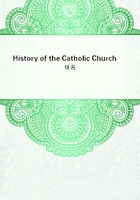
第164章
Nor is it true to say that the advocates of classical learning were animated by hostility to the Catholic Church in their demand for an improvement in educational methods. Some murmurs were, indeed, heard in certain quarters, and charges of unorthodoxy were formulated vaguely against Colet and others of his party, but these were but the criticisms levelled in all ages against those who are in advance of their time, nor do they require serious refutation. The English Humanists had nothing in common with the neo-pagan writers of the Italian Renaissance as regards religion, and they gave no indication of hostility to Rome. Whatever other influences may have contributed to bring about the religious revolution in England, it was certainly not due to the Renaissance, for to a man its disciples were as loyal to the Catholic Church as were their two greatest leaders Fisher and More, who laid down their lives rather than prove disloyal to the successor of St. Peter.
Nor was education generally neglected in the country. The lists of students attending Oxford and Cambridge[3] in so far as they have been preserved point to the fact that in the days immediately preceding the Reformation these great seats of learning were in a most flourishing condition, and that for them the religious revolt fell little short of proving disastrous. The explanation of the sudden drop in the number of students attending the universities is to be found partially at least in the disturbed condition of the country, but more particularly in the destruction of the religious houses, which sent up many of their members to Oxford and Cambridge, and which prepared a great number of pupils in their schools for university matriculation, as well as in the confiscation of the funds out of which bishops, chapters, monasteries, religious confraternities, and religious guilds, presented exhibitions to enable the children of the poor to avail themselves of the advantages of higher education. Nor was England of the fifteenth century without a good system of secondary schools. It is a common belief that Edward VI. was the founder of English secondary colleges, and that during the first fifty years after the Reformation more was done for this department of education than had been done in the preceding three hundred years. That such a belief is entirely erroneous may be proved from the records of the commissions held in the reigns of Henry VIII. and Edward VI., from which it appears that there were close on three hundred secondary schools in England before 1549, and that Henry VIII. and particularly Edward VI. ought to be regarded as the despoilers rather than as the patrons of the English colleges. Distinct from the universities and from the mere primary schools there were in existence at the beginning of the reign of Henry VIII. seven classes of educational establishments, namely, cathedral, collegiate, and monastic colleges, colleges in connexion with hospitals, guilds, chantries, and independent institutions. These were worked in perfect co-ordination with the universities, and in most cases exhibitions were provided for the poorer scholars. "The Grammar Schools which existed," says a reliable authority, "were not mere monkish schools or choristers'
schools or elementary schools. Many of them were the same schools which now live and thrive. All were schools of exactly the same type, and performing precisely the same sort of functions as the public schools and grammar schools of to-day. There were indeed also choristers' schools and elementary schools. There were scholarships at schools and exhibitions thence to the universities, and the whole paraphernalia of secondary education. Nor was secondary education understood in any different sense to that in which it was understood up to fifty years ago. It was conducted on the same lines and in the main by instruments of the same kind, if not identically the same, as those in use till the present generation."[4]
It cannot be said with justice that the English people at the time were either badly instructed in the principles of their religion or indifferent to the practices of the Church to which they belonged. The decrees of the Synod of Oxford (1281), commanding the clergy who had care of souls to explain regularly in simple language, intelligible to their hearers the articles of the creed, the commandments, the sacraments, the seven deadly sins and the seven works of mercy, were renewed more than once, and presumably were enforced by the bishops.